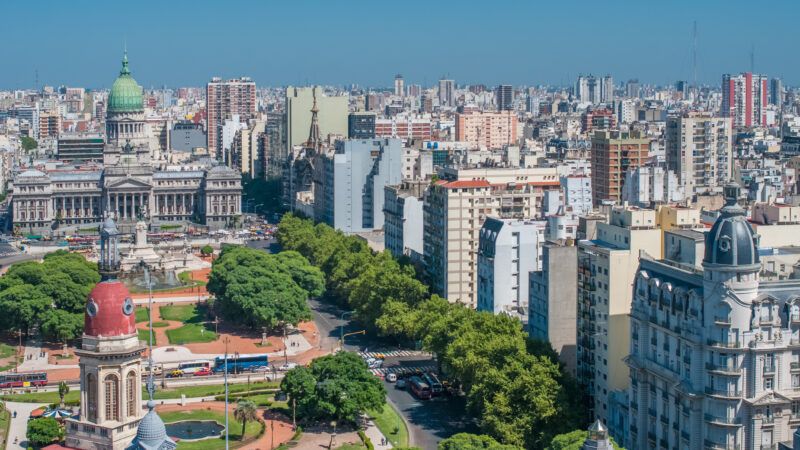Rents Fall and Listings Increase After Javier Milei Ends Rent Control In Argentina
Javier Milei’s repeal of restrictive rent control laws increased housing supply and stabilized prices.

President Javier Milei's sweeping economic reforms have touched many sectors, but few have felt the effects more acutely than Argentina's housing market. His decision to repeal rent control laws late last year has reshaped the country's rental market, increasing housing supply and stabilizing rents.
The 2020 Rental Law, enacted under former President Alberto Fernández, aimed to protect tenants. It mandated three-year lease terms and required rent to be paid in pesos—a currency rapidly losing value due to rampant inflation. Rent adjustments were limited to once a year, based on a central bank rate that factored in inflation and wage growth. The law also allowed tenants to dictate the conditions for lease termination.
While the law seemed to offer relief for tenants, it backfired. By late 2023, one in seven homes in Argentina sat empty, yet Buenos Aires residents struggled to find available rentals.
Faced with inflation and rigid restrictions, landlords were hesitant to sign long-term leases. Many either set excessively high rents to hedge against future inflation or withdrew their properties from the rental market altogether. Others opted to sell in U.S. dollars or list them on short-term rental platforms like Airbnb, where they could charge in foreign currencies.
The crunch of rental properties triggered a full-blown housing crisis. As the supply of rental units dwindled, rental prices skyrocketed, far outpacing inflation. A study by the Institute of Economic Research of the Cordoba Stock Exchange found that rents increased by an average of 140 percent in inflation-adjusted terms between 2020 and 2023.
"In the last three years, the [number of properties in the] normal rental offer has shrunk to a size that I have never seen in my 25 years in the market," Diego Nocera, an estate agent in central Buenos Aires, told the Financial Times earlier this year.
In December 2023, Milei repealed the law as part of his broader push to deregulate the economy. The move sparked a shift in Buenos Aires' housing market: "For many locals, finding a new apartment had become 'mission impossible.' But after the repeal, Buenos Aires saw a doubling of available rental units, and rental prices have stabilized," reports Newsweek. The repeal also introduced more flexible agreements between landlords and tenants. Lease durations, if unspecified, now default to two years, and landlords can legally accept rent in foreign currencies—offering much-needed protection against inflation.
Buenos Aires, a city once gripped by a housing crisis, has seen a flood of available rental units. By June 2024, rental listings increased by 184 percent, with a 62 percent jump in May alone, according to Zonaprop, Argentina's largest property site.
As for rents, the influx of supply is offering much-needed relief to tenants. "While rents are still up in nominal terms, many renters are getting better deals than ever, with a 40% decline in the real price of rental properties when adjusted for inflation since last October," The Wall Street Journal reported.
Argentina's 2020 Rental Law, intended to protect tenants, ended up making housing unaffordable for the average Buenos Aires resident. The issue isn't unique to Argentina—rent control measures have had similar outcomes elsewhere. In San Francisco, expanded rent control laws led to in a spike in evictions. Meanwhile, in the Netherlands, rent caps have prompted property owners to sell their buildings and exit the rental market, according to Reason's Christian Britschgi.
Argentina's experience should serve as a cautionary tale for policymakers: Well-intentioned policies aimed at protecting tenants can sometimes backfire, causing more harm than good.


Show Comments (18)